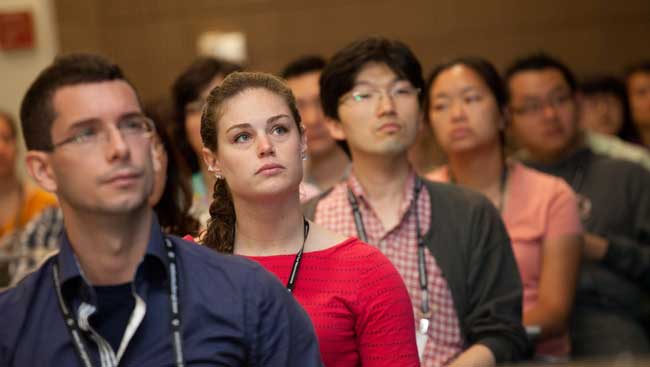
Are you considering graduate school? Four neuroscience program faculty members explain the type of experience and considerations that may be beneficial before you apply.
Gary Dunbar, PhD
Central Michigan University
"Getting the right balance of courses and some research experience is very helpful. It’s not that you can't do well and pick up lab skills once you’re in graduate school, but you may be competing against some students who have one or two publications, making it a little bit more difficult."
David Talmage, PhD
Stony Brook University
"Set out the right course sequence to make sure you get all of the necessary prerequisites under your belt. It is also absolutely critical to find a way to get in-lab research experience, which offers different benefits from what you'll get in a lab course."
Richard Bodnar, PhD
City University of New York
"I hope that you're in a setting where you have very good advisers. But whether or not you have that, you should not be shy about asking questions. Contact schools, advisers, and mentors that may interest you."
Sally McIver, PhD
Northwestern University
"Get research experience early on. Depending on your institution, there may be labs that can help mentor and train undergraduates. A lot of universities also have summer research programs. These are experiences which can be useful in addition to research at your home institution. It gives you more experience away from home, and maybe more diversity in the types of research experience you have."
*Comments adapted from interviews conducted at Neuroscience 2016.


.png?h=1763&w=3125&la=en&hash=B2439C2768576BED6405672E5CD5CF8CB1AA375F)




